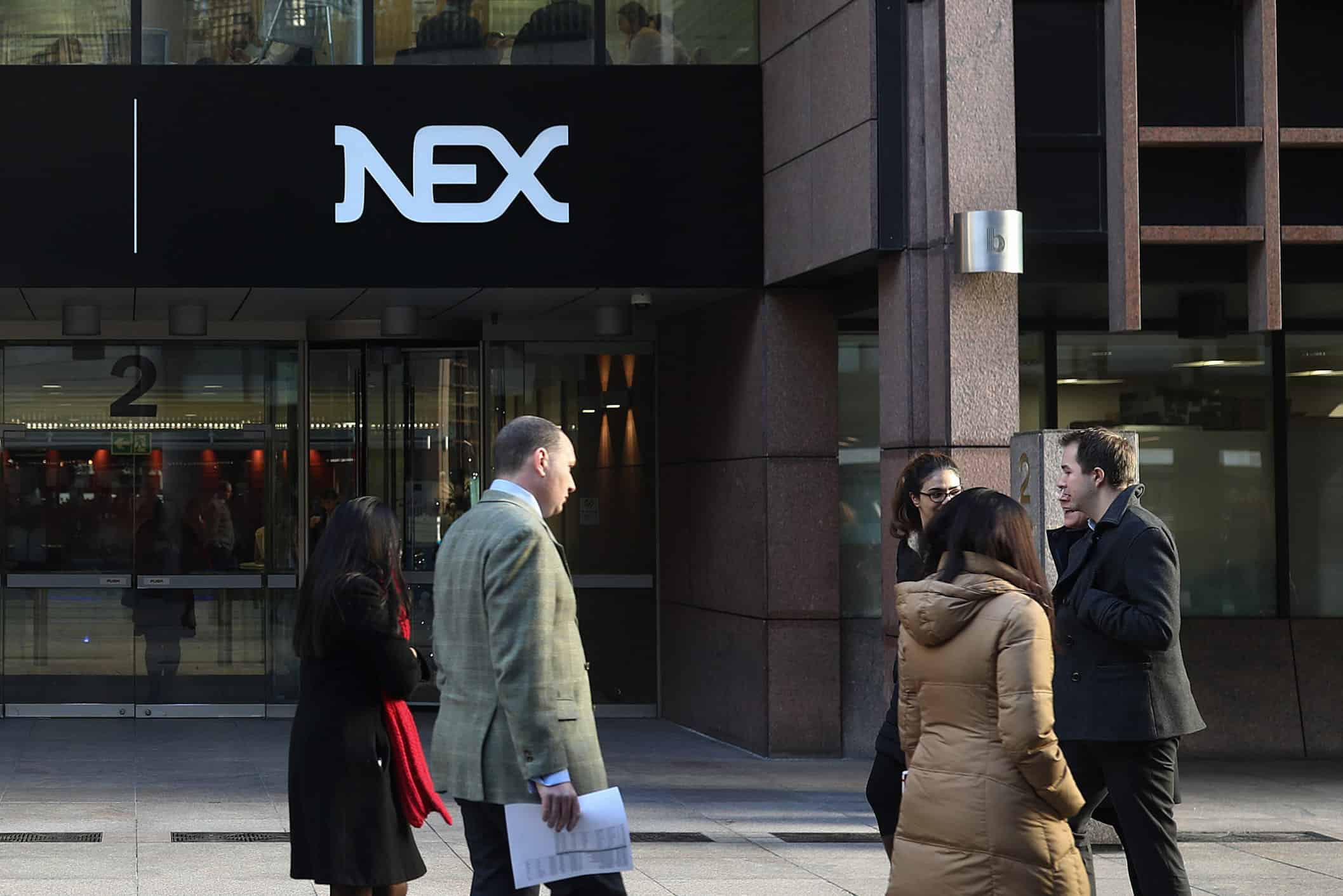 CME Group Inc. (Nasdaq: CME) agreed to buy Michael Spencer’s NEX Group Plc in a transatlantic deal that creates a trading venues giant spanning futures to Treasuries and foreign exchange.
CME Group Inc. (Nasdaq: CME) agreed to buy Michael Spencer’s NEX Group Plc in a transatlantic deal that creates a trading venues giant spanning futures to Treasuries and foreign exchange.
CME Chief Executive Officer Terry Duffy is defying industry skepticism about big cross-border exchange mergers by offering a deal that values London-based NEX at 3.9 billion pounds ($5.5 billion). CME, which already has a near monopoly over trading in Treasury futures, will add BrokerTec, the largest market for trading Treasuries.
Other exchange operators have been hesitant to pursue cross-border mergers. At an annual Futures Industry Association conference this month in Boca Raton, Florida, top market executives highlighted the difficulties of international deal-making during a panel discussion. A year ago, Duffy himself talked about the difficulties of cross-border takeovers, saying countries believe their operators are “part of their DNA.”
NEX and CME agreed to a price of 500 pence and 0.0444 new CME shares, according to a statement on Thursday. At the current share price and exchange rate, that values each NEX share at 1,000 pence, a premium of 49.2 percent over the company’s closing price on March 15, shortly before Bloomberg reported the Chicago exchange operator’s interest in NEX.
Duffy, 59, built CME through big takeovers, including deals with the Chicago Board of Trade and New York Mercantile Exchange. A tie-up of derivatives trading powerhouse CME and NEX could be buoyed by their complementary businesses.
Spencer, 62, will join CME’s board once the deal completes, and he will act as an ambassador for the enlarged company in its dealings with key clients, regulators and officials in Europe and Asia. The lover of French wine and rugby has a fortune of about 1.03 billion pounds.
Justin Bates, an analyst at Liberum Capital Ltd., said that the 10 pound per share offer for NEX is a very good price, but the 50 percent cash component of the deal leaves the door ajar for a competing offer.
“If I had shares I’d be holding on,” Bates said by phone. “Spencer staying on is probably a necessary requirement certainly in the early stages. In CME’s shoes you would want that for the first few years to ensure a seamless integration.”
NEX investors will receive a dividend for the company’s year ending March 31.
NEX, better known by its old name ICAP, dominates electronic Treasury trading. Its fixed-income division is home to about 80 percent of trading volumes in a $14.5 trillion market. CME enjoys a near-monopoly over trading of Treasury futures. Putting cash and derivatives trading under the same roof at CME would save major banks millions of dollars a year by enabling them to set aside less collateral.
The failed $13 billion merger of London Stock Exchange Group Plc and Deutsche Boerse AG cast a pall over the exchange world last year. The deal was addled by the U.K.’s surprise vote to leave the European Union and disagreement over where the combined company’s headquarters should be based. Since then, there’s been a small comeback: Amsterdam-based Euronext NV this month completed its acquisition of Ireland’s stock exchange, a hub for exchange-traded funds.
After clicking on a story, use the back arrow in your browser to return to your search results. Use phrases "in quotes" or the tools below to better filter your results.



